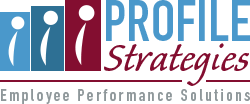If you haven’t noticed…. They’re everywhere! According to U. S. census date, Millennials surpassed Baby Boomers as the nation’s largest living generation in 2016. With over 75 million Millennials out there, it is no surprise this generation (age 18-36) represents more than one-in-three American workers. In 2016, Millennials officially surpassed Generation X (adults ages 37-52) to become the largest share of the American workforce. In the last decade, Millennials have moved into their working, buying and household-forming years. They have become a significant force in the marketplace. We often hear older generations using negative conjecture to describe them: lazy, entitled, narcissistic. Considering their proliferation in our landscape gives new meaning to the old adage “…you can’t live with ‘em, and you can’t live without ‘em!”
Millennials don’t want more than previous generations have expected of their employers… but they do want different. Particularly, they want
- Meaningful work
- Development
- Positive work environment.
Meaningful Work
Millennials don’t just work for a paycheck – they want purpose. Studies have shown that while compensation must be competitive and fair within job families, but beyond this mark it doesn’t necessarily correlate with engagement. To attract and keep the younger members of your workforce, create a mission that resonates. Managers and supervisors must be well aligned to the vision and be able to create a clear picture of how individual achievement connects to the broader purpose of the organization. They must be transparent, honest and create inspiration in their work groups. Millennials also want to work for organizations that take social contributions and stewardship seriously. It is not enough for the company to make the Forbes list. Millennial employees want to work for organizations as committed to responsibility and reputation as they are profits.
To find one of these bright, purpose-driven Millennial workers, ask about their vision and expectations of the company early – even before your hiring decision! Check for the best possible cultural fit and alignment during the interview process. It may seem strange to ask an employee about their expectations of you, but this can reveal important insights about whether you will be able to retain them long-term. Interviews are most productive when you are armed with information about the employee. Pre-employment assessments, like the Profile XT Select, that provide insights on behavioral preferences and interests will give you information to initiate meaningful conversation that is specific to the individual. It is to everyone’s benefit to avoid hiring a cultural misfit, especially since Millennials sight company culture as a reason for leaving 76% of the time.
Development
More than two-thirds of millennials believe it’s management’s job to provide accelerated development opportunities to encourage them to stay. How that gets done is important. Employee development can take many forms. Create empowered teams with autonomy to learn together. Invest in training for the individual and team development. Develop managers to become effective leaders and coaches…. This isn’t always a natural attribute for those in leadership positions (https://dupress.deloitte.com/dup-us-en/deloitte-review/issue-16/employee-engagement-strategies.html). Those who have “grown-up” under antiquated management practices have likely learned their leadership style by the way they were led. There is an essential indoctrination that needs to occur to change old organizational mindsets on this issue. Companies must bifurcate their top priorities to simultaneously focus on creating and aligning organizational vision / mission for the marketplace, while recreating organizational culture to meet modern employee expectations. Today’s leaders, more than ever, must understand and embody the changing needs of employees. They must focus on inspiration and communication that is transparent and inclusive. Talk about the future, share vision and make business concepts come to life as personal concepts for the employee group and engagement will soar.
Positive Environment
Creating a positive work environment is not just about free food and yoga rooms. The young working family desires an employer who understands their need for flexibility and support. The things that make daily life easier and create balance are what’s up in the new world. Research has shown that employee wellness programs and quality of life elements like childcare, laundry service, commuter buses, etc. have had major impacts on employee engagement. A company that considers total life-work impacts gives a whole new meaning to “going to work” for their employees.
Beyond convenience elements, remember the power of gratitude. Build a culture of recognition by creating social reward systems. Remember, this group is used to collecting badges and kudos through a multitude of opportunities so peer-to-peer thank-you systems can boost employee satisfaction.
Millennials also want employers that engage in modern performance management practices that show appreciation, recognition and a contemporary system for performance review. It’s quite simple, really… the way we work has changed, therefore, the way we manage and evaluate must follow suit. Things like work flexibility, According to Mercer’s Global Talent Trends for 2017, 97% of employees want to be recognized and rewarded for the wide range of contributions they make each and every day. Modern businesses are beginning to recognize this need and respond accordingly. Over the last five years, organizations have radically changed the way they measure, evaluate and recognize employee performance. Instead of quarterly goal-setting and evaluation, we see more agile goal management, check-ins and new models of evaluation and reward are being adopted (Deloitte Insights). Informed by their experience in social media, Millennials want to get and give feedback regularly. Companies like Cisco have improved communications feedback with performance management processes that allow managers to touch base with employees on a regular basis using new tools and check-ins that take very little time. The shift has been away from talking about people to talking with people. “Our new performance approach is focused on improving discussions, creating frequent check-ins, and creating a developmental focus,” Amy Berg, director of Adidas Group told Deloitte.





